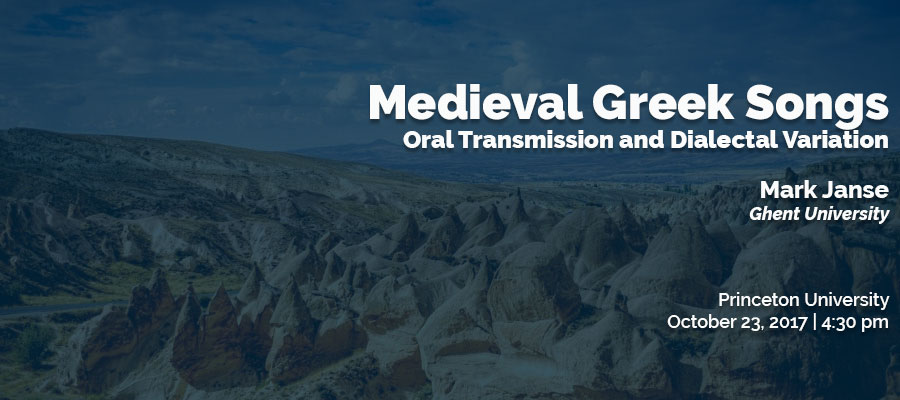Medieval Greek Songs: Oral Transmission and Dialectal Variation, lecture by Mark Janse (Ghent University), Princeton University, October 23, 2017, 4:30 pm
In this paper I discuss the language of an acritic song from Fertek recorded in the nineteenth century. It is composed in the traditional Late Medieval decapentasyllable and relates the encounter of Digenis with Charos/Charon. The language reflects the dialect of Delmesó, a neighbouring village whose dialect is more akin to Northeastern than to Southwestern Cappadocian, to which the dialect of Ferték belongs. The song contains a great many features which are very different from the Delmesó dialect and other Cappadocian dialects as recorded by Dawkins (1916). Many of these features can be identified as archaisms going back to the Late Medieval Period or even before, which have been preserved in the oral transmission of the song and mixed with local dialectal elements. The ‘mixed language’ of the song is thus comparable, mutatis mutandis, to the Kunstsprache of the Homeric epics and is characteristic of songs which have been orally transmitted through the ages.
Mark Janse is BOF-ZAP Research Professor in Ancient and Asia Minor Greek at Ghent University, a former visiting fellow of All Souls College (University of Oxford), Harvard’s Center for Hellenic Studies, and Onassis Visiting Scholar at Princeton University. His research spans the entire history of the Greek language, from Homer to the Modern Greek dialects of Asia Minor. He is well-known for his research on Cappadocian Greek on which he has published extensively, including a grammar. His personal involvement with its speakers has earned him the honorary title ‘Ambassador of the Cappadocians’ and is the topic of a documentary film ‘Last Words’ (Serious Film, 2014).
